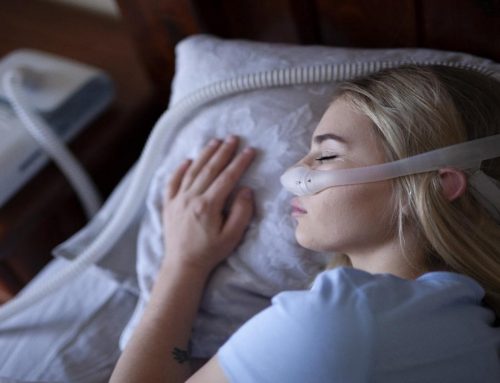Table of Contents
How Smoking Affects Snoring, Sleep Apnea, and CPAP Therapy
 According to the CDC, there are still about 37.8 million Americans that are presently tobacco smokers in the United States.
According to the CDC, there are still about 37.8 million Americans that are presently tobacco smokers in the United States.
Why is this number significant to us here at Sleep Resolutions? We know there is a correlation between smoking and obstructive sleep apnea, and we have found that persons are less likely to seek treatment for their symptoms if they smoke.
We understand that quitting smoking is a scary task and is an option that our patients must make on their own. Our main focus will always be to treat sleep disorders as well as obstructive sleep apnea, even if you decide to continue smoking.
Although we do not encourage anyone to continue smoking, and we definitely can share the tremendous data behind the benefits of quitting, our major concern is to help diagnose and treat patients for their sleep disorders.
Smoking and Snoring
Habitual snoring is snoring three or more times a week that disrupts a person’s sleep patterns or their sleep partner. Research indicates that there is a direct correlation between smoking and snoring. The more an individual smokes, the more likely they are to snore, and the more frequently they snore throughout the week.
There are several ways smoking affects your sleep.
One way tobacco use affects your sleep is by causing inflammation in the upper airway tissues. The inflammation restricts airflow, and additional mucus is made to coat the inflammation. As the airway is narrowed, the air’s movement in a pinched space causes vibration, otherwise called snoring.
Many researchers have explored the connection between sleep apnea and snoring and found that snoring is at least two times more likely for present smokers than those that do not smoke. Though the risk is lower for those who have quit smoking, previous smokers are still more likely to snore than those who have never smoked.
Now we know the connection between smoking and snoring, how does smoking impact those that suffer from obstructive sleep apnea (OSA)?
Smoking and Obstructive Sleep Apnea (OSA)
For those that know the struggle of untreated OSA can speak to the devastating difficulties of losing sleep. Inadequate sleep affects every aspect of our lives. Sleep can be such an underrated part of our general health and well-being. Even just a few nights of poor sleep can leave our immune systems compromised, give us brain fog, increase our likelihood of getting into a vehicle accident, appear tired and sad, struggle to multitask, and even make us more emotional.
When we have extended periods of poor sleep, we put ourselves at a greater risk for diabetes, cardiovascular disease, hormonal irregularities, obesity, and mental health disorders; as you can see sleep is a big deal and must be a big part of our daily self-care.

Patients diagnosed with OSA and smoke usually have more severe symptoms and more pauses in their breathing throughout the night than patients who do not smoke. Smoking decreases the opening in the upper airways, causes congestion, creates a postnasal drip, and results in interruptions in sleep patterns.
Smokers go through nicotine withdrawal symptoms through the night, which can arouse the body from sleep. When patients’ smoking is combined with OSA, the interruptions in sleep can have an even more significant effect on the quality of sleep on patients.
Best CPAP Cleaner wants to stress that with the elevated risk for more frequent and more severe symptoms that occur for patients that are diagnosed with OSA and also the associated health concerns with smoking, it is vital for them to seek treatment for their OSA.
Tips on Quitting Smoking
We understand that not everybody is ready to quit smoking, but decreasing consumption can even benefit CPAP users. Some studies show that patients that maintaining consistent compliance with CPAP therapy makes it easier to kick the habit to the curb.
Here are some guidelines for kicking that habit to the curb.
- Get help. Find a doctor that will work with you at your pace. Having support in your family and your doctors can make a big difference.
- Be patient with yourself. There is a reason it’s an addiction. Quitting can take a lot of time.
- Have a plan for circumstances that make you want to smoke. A plan can give you the tools you will need for saying “no” when you want to smoke.
- Wait out the craving. Usually, a craving lasts between three to five minutes.




 Shop
Shop



